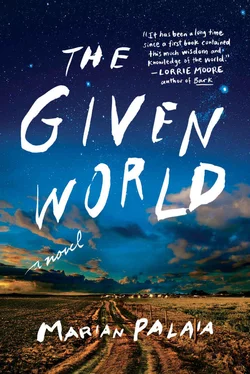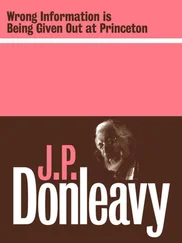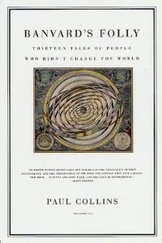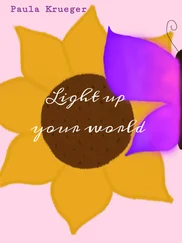“Does it have a name?”
“Scablands,” I say.
“Like scabs you pick.” The girl raises one sermonizing finger. “And make them bleed. And if you do it too many times, you get scars.” The words sound ingrained, as if she has been admonished for the very thing on more than one occasion but still has to do it, just to prove to herself that some things will always hold true.
“Exactly.”
The train tracks hug the river; they are so close that sometimes I can see only water even if I press my forehead to the glass and look straight down. No more than a few stops between Portland and Spokane, because there isn’t much out here to stop for. Unless you want a closer look at the geology — how all the different pieces fit — and I would very much like that, if the train would only stop moving, if only for a little while. It is a place Mick would have loved, and maybe once came to — digging holes and pocketing treasures, dusting off the debris of past lives.
I visited him in Missoula once, in 1967, his sophomore (and last) year in college. He showed me, on the mountains surrounding town, the high-water marks, which in a particular sort of late-afternoon light looked almost drawn there, penciled in by some disembodied hand. I imagined the town and buildings already in place at the bottom of the lake bed, twelve thousand years before. Imagined swimming deep underwater down Railroad Street, Higgins and Front, past the train depot and the Oxford Saloon, Eddie’s Stud Club and the old hotels, looking through the windows at the people playing poker and drinking beer, fighting, stomping out chain-smoked cigarettes on sawdust-covered floors. I was eleven and hadn’t yet learned how to swim, but nevertheless had no difficulty seeing myself as a fish or some other meandering water creature. Aside from my fascination with all things aquatic, I tended to live an existence not wholly hitched to reality anyway. Mick called me Dolphin Girl sometimes, or Miss Fish Lips.
Aside from the skinny on the lake, the rocks, and the rivers, he filled my malleable young brain with countless other miracles. Then left it to me to figure out how much of it he’d simply made up. The time he told me about water coming from stars, for example, seemed like an easy one — completely not true — but years later I found out it did happen, sometimes, through an intricate, tandem process involving explosions and compression of intergalactic gas and dust. I didn’t understand it enough to explain to someone else, but was still suitably impressed by the magic of the process itself, the fact that Mick knew about it, and the even more astonishing fact that he was not bullshitting me.
The part about coming back, though — that part had been pure bunk. Dead or alive, he said, like it was some kind of gangster-movie joke. A joke with the worst punch line ever. I have still not come to terms with how old old is, but I know how gone gone is. Dead-end-tunnel gone. No exit through the gift shop.
And now my father is preparing to slip away too, or so his letter said. I have no reason not to believe him. If he had his heart set on something so ordinary as luring his transient daughter home, he probably would have tried it a long time ago, and a lot more directly. My mother — in postcards and letters, during rare phone conversations and that one time the three of us met in the middle — has deliberately avoided asking, or even hinting. It is as if they have both always understood that whatever inexplicable trajectory I was on would lead me home in its own good time. Or wouldn’t. And maybe that was not an outcome they’d ever been waiting for anyway; maybe it was for the best that I left and stayed gone, since my presence would only have reminded them every day of their other kid. Maybe they didn’t want to be reminded. There is really no good way around it, though, except maybe to go and stay gone. Exhibit A: how well that has worked out. Exhibit B: not so perfectly, but.
Somewhere between Pasco and Spokane, I finally fall asleep. Familiar dreams play on a smudgy screen: flying dreams, where I sail and spin effortlessly on thermals, like the hawks, or crows just before a storm. And Mick dreams, the two of us riding on his motorcycle, my cheek pressed to the back of his warm, worn leather jacket and my hands in his pockets; leaning with him into the turns, sure he will not let us crash, certain that of his many inglorious traits, unlucky is not one.
In real life, there were a few near misses: one with an elk in the Bearpaw Mountains, a few more with wet roads and gravel, a loopy bird once that caught Mick right in the chest. It was a small one, though, and we didn’t go down that time, or any other. I was never even scared enough to take my feet off the pegs, blind faith a waking specialty then.
I open my eyes around two thirty just outside Sandpoint, where the ice dam was, and the just-past-full moon is on the rise, huge and unworldly amber, rolling like Sisyphus’s rock up the side of the first real mountain we’ve come anywhere near. The train rumbles slowly over the long bridge spanning the western end of Lake Pend Oreille, and I can see a few lights on in the town, but not many. The bars have already closed by now and the bartenders given everyone the boot. The only stragglers will likely be the really drunk ones, arguing in the street about things they won’t even remember tomorrow, or trying to get lucky, trying to talk some warm human into bed or a skinny-dip in the lake.
At the edge of town, where the train tracks meet up with the land again, I see a wolf, or a big coyote, pull something out of the water, but can’t tell what it is. Maybe a fish. Or a goose. Maybe an old mukluk. Some kid’s stuffed animal, lost for all time. I remember our conversation about wolves and turn to the girl next to me, but she’s sleeping. I sneak a look at the box, which has crept out from under the seat and is now loose on the floor between us. I want to pick it up, shake it, but I don’t.
At Sandpoint a few passengers get off, a few board, and we are traveling east again, so nearly in Montana that I can taste it low in my throat. I have begun to feel a clear sense of both anticipation and panic, to fist and unfist my hands, occasionally shaking them in front of me like a little kid performing the corralled equivalent of bouncing off the walls — at the dizzying prospect of something anticipated but more than a little scary and, in a sense, withheld too long. My chest is tight and full — of what, I have no idea, but it feels like tar, or clay, not like oxygen at all. I do understand about heartache, why they call it that, but don’t know the anatomy, the chemistry, whatever. It doesn’t matter, so long as I don’t explode, which every few minutes feels like a real possibility.
By four, I know we have crossed the border, even though there is no sign, like there would be on the highway, saying Welcome or Now Entering the Treasure State . Something has changed, though: the trees, or the hills, or maybe the moon. My hands are going like hamsters jacked up on Dexedrine, and I leave them to their own recognizance.
I hear the girl next to me say, “Are you okay?” and flinch.
“Yeah, I’m okay. It’s just been a long time since I’ve been back here.”
“Back here where?”
“Montana.”
“We’re in Mon tana already?” Like she’s saying, “We’ve already reached Mars?”
I bring my clenched fists up to my face; press them to my cheeks. “I’m almost sure.”
“Is this where you came from?”
I repeat the words in my head, but they don’t completely make sense. What does “came from” even mean?
“I was born here,” I say. “East. The other side of the mountains. Hard telling, however, where I came from.” I laugh, but my hands are still fluttering like drunken luna moths, in complete disregard of how others might interpret their behavior. I stare at them briefly, shake my head, and wedge them between my legs.
Читать дальше












